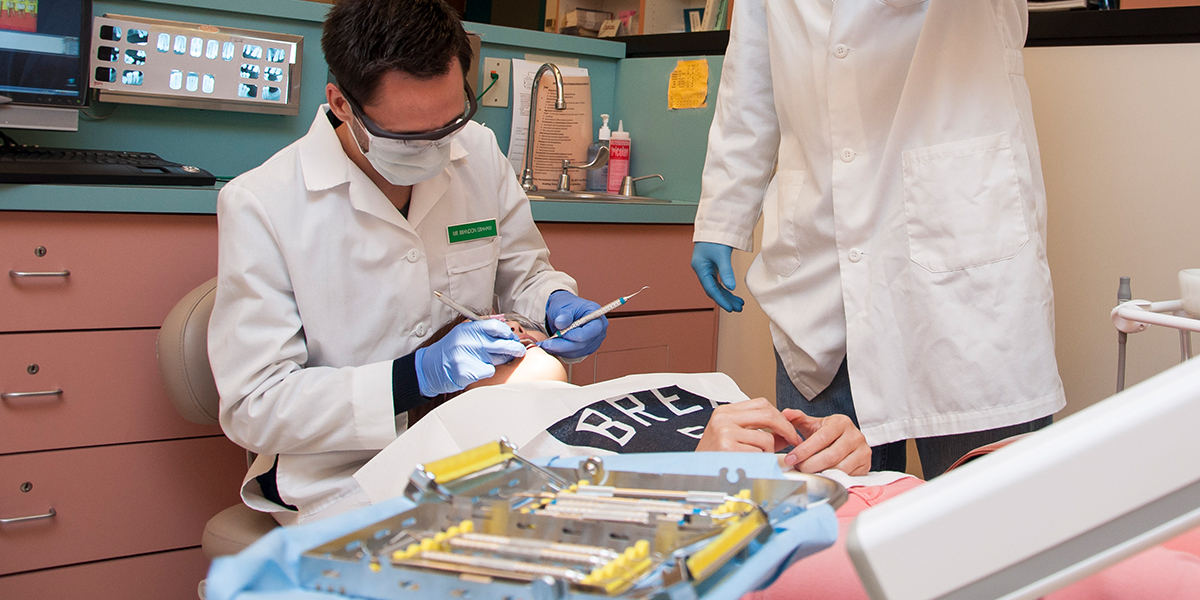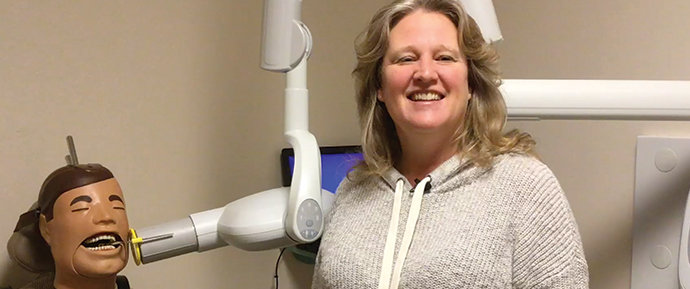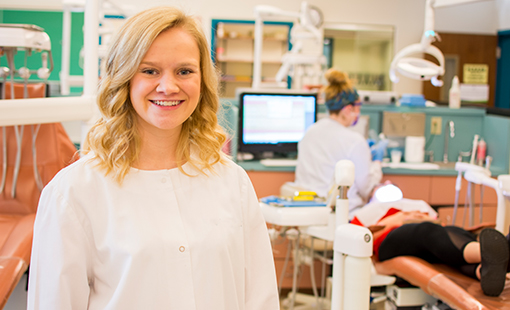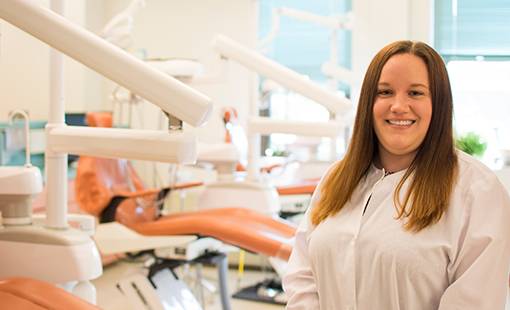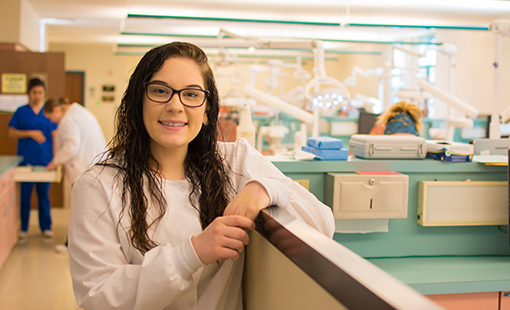Accreditation
The Dental Hygiene program is accredited by the Commission on Dental Accreditation
of the American Dental Association, a specialized accrediting body recognized by the
Council on Post-Secondary Accreditation and the U.S. Department of Education.
The Commission on Dental Accreditation will review complaints that relate to a program's
compliance with the accreditation standards. The Commission is interested in the sustained
quality and continued improvement of dental and dental-related education programs
but does not intervene on behalf of individuals or act as a court of appeals for individuals
in matters of admission, appointment, promotion or dismissal of faculty, staff or
students.
A copy of the appropriate accreditation standards and/or the Commission's policy and
procedure for submission of complaints may be obtained by contacting the Commission
at 211 East Chicago Avenue, Chicago, IL 60611-2678 or by calling 1-800-621-8099 extension
4653.
The program has been granted the status of “approval without reporting requirements.”
